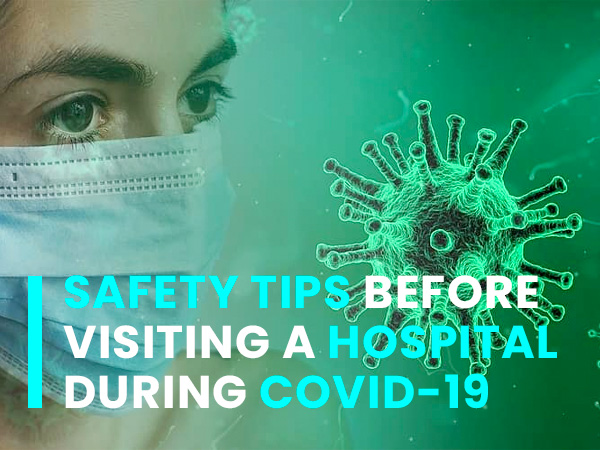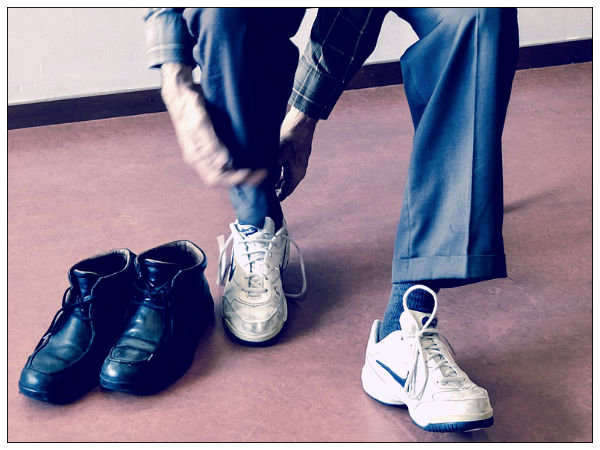Just In
- 28 min ago

- 8 hrs ago

- 8 hrs ago

- 12 hrs ago

Don't Miss
- Movies
 Bigg Boss Malayalam 6 Elimination Update: Jaanmoni Gets Evicted From Mohanlal’s Show? Here’s What We Know
Bigg Boss Malayalam 6 Elimination Update: Jaanmoni Gets Evicted From Mohanlal’s Show? Here’s What We Know - Sports
 WCL: How to buy Tickets for World Championship of Legends?
WCL: How to buy Tickets for World Championship of Legends? - Finance
 625% Dividend, 1:10 Split, 3 Bonus; FMCG ITC Makes Big Acquisition Announcement; Stock Target Prices In April
625% Dividend, 1:10 Split, 3 Bonus; FMCG ITC Makes Big Acquisition Announcement; Stock Target Prices In April - News
 BJP Chief Nadda Accuses Congress And Left Of Ideological Bankruptcy
BJP Chief Nadda Accuses Congress And Left Of Ideological Bankruptcy - Education
 Exam Pressure Does Not Exist; Studying Punctually is Crucial; Says Aditi, the PSEB 2024 Topper
Exam Pressure Does Not Exist; Studying Punctually is Crucial; Says Aditi, the PSEB 2024 Topper - Automobiles
 Suzuki Swift Hatchback Scores 4 Star Safety Rating At JNCAP – ADAS, New Engine & More
Suzuki Swift Hatchback Scores 4 Star Safety Rating At JNCAP – ADAS, New Engine & More - Technology
 Dell Introduces AI-Powered Laptops and Mobile Workstations for Enterprises in India
Dell Introduces AI-Powered Laptops and Mobile Workstations for Enterprises in India - Travel
 Journey From Delhi To Ooty: Top Transport Options And Attractions
Journey From Delhi To Ooty: Top Transport Options And Attractions
COVID-19: Safety Tips For Visiting Hospitals During The Pandemic
The major problem non-coronavirus patients have faced during the pandemic is restrictions on hospital visits. As the number of coronavirus patients is peaking day by day, people are cancelling or delaying their non-emergency or regular medical cares out of COVID-19 fear, which are leading them to many complications.

Apart from handling coronavirus patients, the hospitals are also trying to deliver care to other needy patients with strict measures to prevent the spread of the infection. In this article, you will find basic guidelines for patients who are planning to visit a hospital during the COVID-19 pandemic. Take a look.

1. Make appointment before the visit
It is essential to make a doctor's appointment before you visit a hospital or a clinic, especially if you have a chronic disease. This will avoid unnecessary queuing up along with other patients, which can increase the risk of infection.
2. Inform the doctor about your health
Before the appointment, make sure to inform the doctor about your health and ask them the procedure of the visit. Also, ensure to take up COVID-19 test, if necessary.
3. Ask about the cleaning frequency
It is better to priorly ask about the safety measures for the non-coronavirus patients and ways implemented to deal with them. Also, ask about the cleaning frequency after every patient visit. Ensure that there's a separate ward for COVID-19 patients.

4. Wear a mask
This is the mandatory and the foremost rule before stepping out of the house. Wearing a mask is crucial to preventing infected air droplets from entering your nose and mouth and causing you the infection.

5. Carry a sanitiser
Always carry an alcohol-based hand sanitiser and sanitise your hands immediately after coming out of the hospital or after touching any objects in the hospital. Wash hands with soap and water, if there's availability for it.
6. Maintain social distancing
Social distancing is strictly followed in healthcare and other sectors. It helps reduce the risk of infection through air droplets when a person coughs or sneezes. Maintain social distancing of around six feet or more.

7. Visit alone (if possible)
It is better to go alone for a doctor's appointment during this pandemic to prevent others from the risk of infection. For elder patients, only a single healthy person is recommended to accompany.
8. Stay indoors if you have COVID-19 symptoms
If you doubt of coronavirus by your symptoms and recent visits, it is advised to stay indoors and consult a hospital for COVID-19 test. The symptoms of coronavirus may include fever, sore throat, dry cough, fatigue and muscle pain

9. Avoid if you are pregnant
Visiting a hospital during pregnancy can be risky for you as well as for the foetus. Avoid the visit unless it is an emergency or any complications related to pregnancy.

10. Avoid touching anything
While in the hospital premise, avoid touching anything as they can act as fomites and spread the infection. Fomites are objects upon which the infected air droplets get settle and spread when a person touches them and then touches their mouth, eyes or nose.

11. Use your own vehicles
Prefer visiting a hospital in your own vehicle. Avoid taking public transportation and book a separate cab for the visit. Also, sanitise your hands as soon as you come out of the cab. If you are using your own vehicle, clean it after the visit.
12. Go cashless
Due to the pandemic, everywhere the cashless system has been introduced to maintain a contactless money transfer. Do all the medical-related transactions online, as the paper money can also act as a fomite and spread the infection.

13. Carry necessary documents
Bring all the necessary documents to avoid a revisit to the hospital. Discuss with the doctor regarding online or video consultancy for further treatment, if needed. Also, make sure to buy medications at least for a month to avoid recent trips to the pharmacy.
14. Change immediately
As soon as you reach home, ask someone to open the door and immediately go to the washroom for change of the clothes and handwash. It is better to take a bath or wash the exposed areas of the body with soap and water.
15. Don't forget to sanitise shoes
Shoes can be infected with coronavirus and spread the infection. Clean the shoes with soap and water or disinfect them after a hospital visit.

Common FAQs
1. What percentage of patients with COVID-19 need to be hospitalized?
According to experts, only 1 out of 5 COVID-19 patients are hospitalized due to complications. Most people recover soon from the condition just by simple medications.
2. Should coronavirus disease patients be isolated in hospitals?
Yes, COVID-19 infected patients should be isolated in hospitals to prevent the spread of infection to other patients. Even patients with mild cases are recommended to be treated separately.
3. How long do COVID-19 patients need to be isolated for?
According to WHO and CDC, COVID-19 patients should be isolated for around 14 days, as the symptoms are likely to occur during the period.

-
 healthCOVID Surge In India: Do You Need A COVID-19 Booster Shot?
healthCOVID Surge In India: Do You Need A COVID-19 Booster Shot? -
 disorders cureCommon COVID Symptoms In Fully Vaccinated Individuals: What You Should Know
disorders cureCommon COVID Symptoms In Fully Vaccinated Individuals: What You Should Know -
 wellnessMild COVID Linked To Life-Threatening Blood Clots, Increased Risk Of Cardiovascular Disease; Study
wellnessMild COVID Linked To Life-Threatening Blood Clots, Increased Risk Of Cardiovascular Disease; Study -
 wellnessCOVID-19 Variants In India: New COVID Variant May Pose Threat To Elderly People
wellnessCOVID-19 Variants In India: New COVID Variant May Pose Threat To Elderly People -
 basicsCovid-19 Linked To Early Onset Of Periods: What You Need To Know
basicsCovid-19 Linked To Early Onset Of Periods: What You Need To Know -
 wellnessCOVID XBB Variants Of Omicron In India: What You Should Know
wellnessCOVID XBB Variants Of Omicron In India: What You Should Know -
 disorders cureNew Omicron Subvariant BQ.1 Detected In Maharashtra: What You Should Know
disorders cureNew Omicron Subvariant BQ.1 Detected In Maharashtra: What You Should Know -
 disorders cureOmicron BF.7 In India, Risk Of Fresh Wave During Diwali: What You Should Know
disorders cureOmicron BF.7 In India, Risk Of Fresh Wave During Diwali: What You Should Know -
 wellnessCoronavirus Residues Might Be Causing Long COVID: New Study
wellnessCoronavirus Residues Might Be Causing Long COVID: New Study -
 wellnessCentury-Old TB Vaccine Could Be Effective Against Covid-19 And Other Infections: New Study
wellnessCentury-Old TB Vaccine Could Be Effective Against Covid-19 And Other Infections: New Study -
 disorders cureCovid-19 Patients At Risk Of Neurological & Psychiatric Conditions Two Years After The Infection: New Study
disorders cureCovid-19 Patients At Risk Of Neurological & Psychiatric Conditions Two Years After The Infection: New Study -
 wellnessCOVID In Smokers: An Expert Explains
wellnessCOVID In Smokers: An Expert Explains


 Click it and Unblock the Notifications
Click it and Unblock the Notifications



